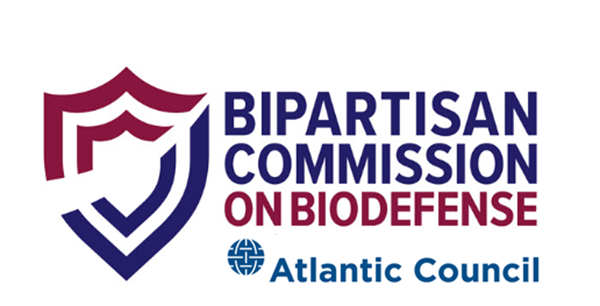Blue Ribbon Study Panel: U.S. Not Prepared to Identify Perpetrators of Biological Crimes, Terrorism, Proliferation, and Warfare

FOR IMMEDIATE RELEASE
Contact: Steve Aaron, SRA Communications, (717) 554-8614, steve@SRACommunications.com
BLUE RIBBON STUDY PANEL: U.S. NOT PREPARED TO IDENTIFY PERPETRATORS OF BIOLOGICAL CRIMES, TERRORISM, PROLIFERATION, AND WARFARE
Effective Prosecution Depends on the Ability to Attribute Crimes, But U.S. Government Lacks Microbial Forensic Capability
WASHINGTON, D.C. (Oct. 3, 2017) – When violent attackers use biological agents to inflict harm, not only must law enforcement attribute the crime to the correct perpetrator, they must also identify the pathogens used and their sources exactly and quickly. That is the focus of a special meeting today hosted by the Blue Ribbon Study Panel on Biodefense. Called Biological Attribution: Challenges and Solutions, the objective of the Panel meeting is to better understand the ability of the U.S. government to correctly identify pathogens and their sources; attribute the use of biological weapons with scientific and other forms of evidence; and explore the processes used for investigative, legal, policy, and political decisions involving biological attribution.
“Effective prosecution depends on the ability to quickly and accurately attribute crimes to their perpetrators,” said Ken Wainstein, meeting chair, and former Homeland Security Advisor and United States Attorney. “In the aftermath of a biological attack, we need to find out who did it, how they did it, what disease agent they used, and where they obtained it. The biological threat is real and growing, and the Nation needs this attribution capability now.”
Adds former Senate Majority Leader Tom Daschle, whose office received some of the anthrax letters in 2001, “We face some major challenges in microbial forensics and biological attribution, but we can overcome many of them. We need to do what we can to eliminate them now, before we find ourselves under attack again. We can’t afford to have another investigation drag on for years.”
In addition to Mr. Wainstein and Senator Daschle, former Senator Joe Lieberman, who co-chairs the Blue Ribbon Study Panel on Biodefense, is attending the event.
The Panel will address the impact of the President’s FY 2018 budget request that would eliminate critical biological attribution and other biodefense functions of the Department of Homeland Security (DHS). The Blue Ribbon Study Panel on Biodefense in June 2017 raised serious concerns about the proposed closure of the National Biodefense Analysis and Countermeasures Center (NBACC) in Maryland.
“NBACC is the only facility in the United States with the bioforensics capability needed to assist the FBI in its investigations,” Sen. Lieberman said at the time. “Terminating funding would leave the country without a core investigative tool for biocrimes and bioterrorism.”
The National Bioforensics Analysis Center (NBFAC), part of the NBACC, conducts technical analyses in support of federal law enforcement investigations and attempts to coordinate multi-agency biological forensic efforts. The NBFAC has not become the resource for biological forensics the Nation needs. The DHS Science and Technology Directorate (which administers the NBFAC) has struggled to coordinate with and serve other agencies, because it is not an operational organization and because its scientific goals sometimes run at cross-purposes to those of the operational communities it could serve. As a result, agencies sometimes decline to work with or utilize NBFAC. The Federal Bureau of Investigation is by far the primary user of the NBFAC, and the facility should have been under the purview of the FBI from its inception.
The Panel addressed these issues in A National Blueprint for Biodefense, Recommendation 9: Better support and inform decisions based on biological attribution. The Panel stated that the Nation has yet to fully establish biological attribution capability due to the inherent challenges associated with microbial forensic techniques and related analyses. No formal apparatus exists that uses biological attribution information to inform decisions. The Panel continues to advocate for the following action items:
ü Establish a national biological attribution decision-making apparatus. The Vice President should direct the Secretary of State, Secretary of Defense, Secretary of Homeland Security, the Attorney General, and the DNI to establish and formalize this apparatus. They should inform this apparatus with: 1) standards/ burdens of proof in the U.S. criminal justice system; 2) evidence, information, and intelligence regarding the source; 3) accuracy, reliability, timeliness, credibility and defensibility of that evidence, information, and intelligence; and 4) national security considerations. This apparatus should be exercised to inform decisions and to ensure that these decisions are defensible.
ü Place the Federal Bureau of Investigation in charge of the National Bioforensics Analysis Center. The FBI is the primary customer of NBFAC and has the needed credibility and influence to allow NBFAC to fulfill its role in biological forensics and attribution. Congress should amend The Act to Enact Title 5 of the U.S. Code, “Government Organization and Employees,”and make the FBI responsible for the NBFAC, its administration, and its activities, including interagency support and coordination. Congress should reallocate appropriations accordingly. Congress should also increase its oversight over NBFAC activities.
For a complete agenda of today’s special meeting at the Hoover Institution, click here.
About the Blue Ribbon Study Panel on Biodefense
The Blue Ribbon Study Panel on Biodefense was established in 2014 to conduct a comprehensive assessment of the state of U.S. biodefense efforts, and to issue recommendations to foster change. The Panel’s 2015 report, A National Blueprint for Biodefense: Leadership and Major Reform Needed to Optimize Efforts, identified capability gaps and recommended changes to U.S. policy and law to strengthen national biodefense while optimizing resource investments. The Panel continues to assess biodefense challenges and to urge reform. Former Senator Joe Lieberman and former Governor Tom Ridge co-chair the Panel, and are joined by former Secretary of Health and Human Services Donna Shalala, former Senate Majority Leader Tom Daschle, former Representative Jim Greenwood, and the Honorable Ken Wainstein. Hudson Institute is the Panel’s fiscal sponsor.
